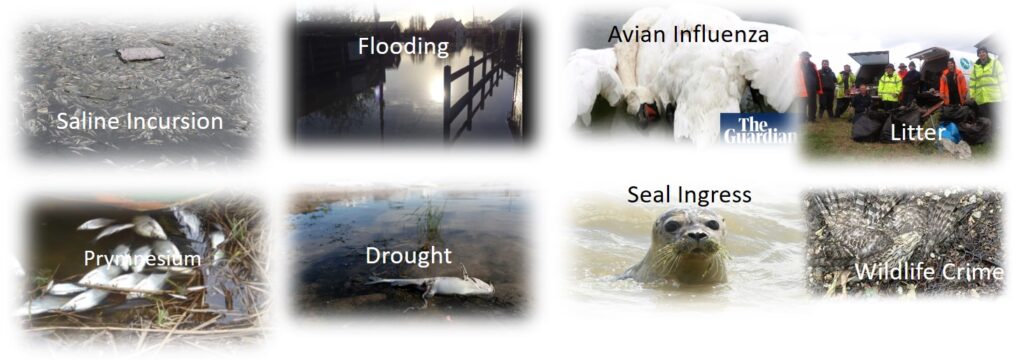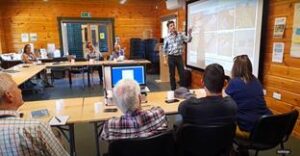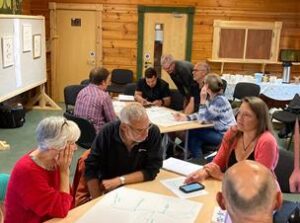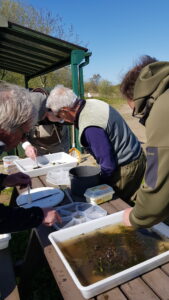April saw our focus move more into a strategic direction, with our approach to improving environmental outcomes in the Broads moving forward and traction on raising spotlight on salinity and maintaining the Broads freshwater ecology becoming a national and international issue.
On the National and International stage.
Duncan and I went to the joint IFM/EA national fisheries conference held in Leeds and presented well received presentations on both these topics. Whilst in early May the Broads salinity issue made international news through Reuters and reporter Rachel Parsons.
We are holding meetings with the EA in May discussing improving our combined abilities to enable improved reaction to the management of salinity events. What lessons have been learnt following last September’s events what plans are now on place to ensure an appropriate response.
Where’s our Water
Our continued digging into last years events has now shown that for much of the summer Essex and Suffolk Water, didn’t use the Trinity Broads for public waster supply. But used their abstraction licence to take water from the River Bure at Belaugh at a rate of 24ml/day.
The reason for this is that the Trinity Broads suffered from two types of algal blooms, which impacted on the water quality. But it appears that their permits allow them to take vast amounts of freshwater from the river despite the drought conditions and almost zero flow. It’s no wonder in these conditions the tidal ingress progressed so far and so quickly, but what is the answer to this and what can be done to limit the impact in the future.
These are all serious questions that climate change is challenging us with. We all need water and the 24ml/day supply is needed in the Great Yarmouth and Lowestoft area, else the taps run dry. But any solution is complex and certainly costly to implement. I hear every week more stories of us taking water for granted, whether its water to build Sizewell C or building the vast continuous growth around Cambridge. It all needs water.
Broads Environment Management
The planned stakeholder meeting to engage all Broads stakeholders has been put back until late June, to ensure as many attendees can get it into their diaries as possible. This meeting is a result of discussions with the EA at Director level, who admits they don’t have the resources to deliver the services needed to sustain the Broads environment. Seemingly a common theme across all governance agencies. Our intention is to explore how the multitude of voluntary groups can come together to provide an enhanced environmental response team, like we have seen in the Netherlands and in Germany.
Below are some of the issues within scope of the discussion, which all suffer from overall ownership and management.
 What started out as primarily fisheries related issues, have become must wider spread environmental management and infrastructure related concerns in the way we manage and abuse our environment. Only time will tell if we all come together we can make a difference.
What started out as primarily fisheries related issues, have become must wider spread environmental management and infrastructure related concerns in the way we manage and abuse our environment. Only time will tell if we all come together we can make a difference.
Wensum
Wider across of the Wensum, an early version of this is already working through the Wensum Catchment Partnership, taking ownership of water quality sampling and invertebrate studies. The question is can this evidence enforce change in Nutrient Neutrality loads actually seen in the River, or does this become yet another tradable commodity scheme and not resolve the actual problem.
What you can’t fault is the volunteers enthusiasm in their efforts, whether it’s Invertebrate sampling or water quality testing. Thank you all.
Regards
Kelvin
Chair BASG





